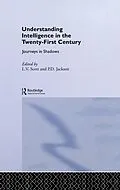Over the past few decades, international history and security were significantly influenced by greater understanding of the role of intelligence in national security and foreign policy making. In Britain, much of the work has developed in the sub-discipline of international history with its methodological predisposition towards archive-based research. Advances in archival disclosure, accelerated by the end of the Cold War, as well as by the changing attitudes of official secrecy and the work of the intelligence services, have further facilitated research, understanding and debate. Recent controversies, including claims of politicisation of intelligence historiography, have added additional public saliency to long-standing academic disputes. The events of September 11 and their aftermath have shown the value and limits of secret intelligence and generated fresh controversies for proponents and critics.
This book examines critically the development of intelligence studies and assesses its contribution tothe study of international relations. It draws upon the viewpoints of leading academics, journalists and former practitioners to explore the way the subject is studies, for what purposes and with what consequences.
Autorentext
Peter Jackson and L. V. Scott
Zusammenfassung
Over the past few decades, international history and security have been significantly influenced by greater understanding of the role of intelligence in national security and foreign policy-making. In Britain, much of the work has developed in the subdiscipline of international history with its methodological predisposition towards archive-based research. Advances in archival disclosure, accelerated by the end of the Cold War, as well as by the changing attitudes of official secrecy and the work of the intelligence services, have further facilitated research, understanding and debate. Recent controversies, including claims of politicisation of intelligence historiography, have added additional public saliency to long-standing academic disputes. The events of September 11 and their aftermath have shown the value and limits of secret intelligence and generated fresh controversies for proponents and critics.This book examines critically the development of intelligence studies and assesses its contribution to the study of international relations. It draws upon the viewpoints of leading academics, journalists and former practitioners, to explore the way the subject is studied, for what purposes and with what consequences.
Inhalt
Foreword, Preface, List of Abbreviations and Acronyms, List of Figures and Tables, List of Contributors, 1. Journeys in Shadows, 2. Intelligence, International Relations and 'Under-theorisation', 3. German Intelligence History: A field in search of scholars, 4. Netcentric Warfare, C4ISR and Information Operations: Towards a revolution in military intelligence?, 5. Some Concepts that may be Useful in Understanding the Myriad Forms and Contexts of Surveillance, 6. 'Who Profited from the Crime?' Intelligence Failure, Conspiracy Theories and the Case of September 11, 7. Bletchley Park and the Holocaust, 8. Fiction, Faction and Intelligence, 9. The Geopolitics of James Bond, 10. Hunters not Gatherers: Intelligence in the twenty-first century, 11. Secret Intelligence, Covert Action and Clandestine Diplomacy, 12. Ethics and Intelligence after September 2001, 13. 'As Rays of Light to the Human Soul'? Moral Agents and Intelligence Gathering, Index
